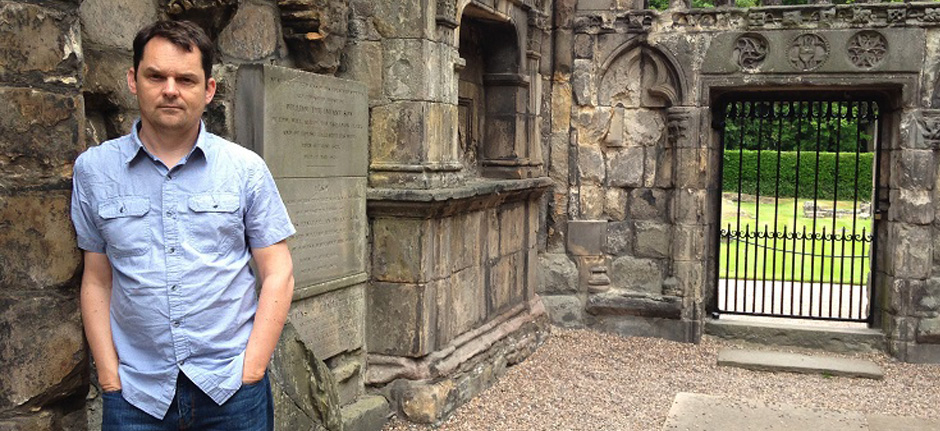1. General Studies
Though the church long ago censured the reading of the apocryphal gospels, the stories they contained inspired artists from Late Antiquity to the Renaissance. For a sampling of art based on the NT Apocrypha check out David Cartlidge’s database of images.
This site, maintained by Peter Kirby, is the starting place for all web-based Apocrypha research. As the name suggests, the site is more than a selection of apocryphal texts; it covers also canonical and patristic literature. Entries for individual texts feature synopses, multiple translations, transcribed journal articles, and links to other sites.
Development of the New Testament Canon
The “Writings” section of the site contains a number of CA texts. Brief introductions are given and links to English translations on other sites.
The site is administered by Andrew Bernhard, an Oxford Graduate and author of Other Early Christian Gospels (London: T & T Clark, 2006), a study of the CA texts preserved in early papyri (e.g., P.Oxy. 840, The Egerton Gospel, the Greek manuscripts of the Gospel of Thomas, and others). The site contains resources for the study of twelve texts: the Gospels of Thomas (which receives the most attention), Judas, Mary, Peter, Egerton, P. Oxy. 840, the Jewish-Christian gospels, Secret Mark, and the Infancy Gospels of James and Thomas. For each gospel, Bernhard provides a list (and sometimes images) of the extant manuscripts, a select bibliography, scans of secondary sources (where available), and links to on-line resources. The site features also a blog and a page of supplementary resources (e.g., links to texts from the Church Fathers, lexicons, etc.).
Wieland Willker’s site features a few detailed pages dedicated to particular texts: Papyrus Egerton, Secret Mark, and Gospel of Thomas.
Duke University scholar Mark Goodacre has assembled this awardwinning “meta-site” on New Testament scholarship. Of particular interest is the page on non-canonical literature which features a number of links to web sites of interest.
The Non-canonical Literature page at the Wesley Center for Applied Theology
Contains a fairly extensive repertoire of texts, though they are either translations in the public domain (primarily Roberts-Donaldson) or links to sites which host public domain e-texts.
The Ante-Nicene Fathers Wikisource Page
Another source for the Roberts-Donaldson translations (in volume 9) but with superior transcriptions.
The Whole Bible: Analysis of the Canonical and Apocryphal New Testament Scriptures
Here Geof Trowbridge presents primarily introductions to the various texts.
Pitts Theology Library’s Early Christian Apocrypha Research Guide
Pitts Theology Library at Emory University has prepared an excellent research guide on Early Christian Apocrypha. It provides information on concepts and methodology, print resources, on-line resources, and research guidance. Of particular interest is the extensive alphabetical list of texts. Selecting a text will give you a brief description of the text, the original language and estimate of time of composition, alternate titles, and a source for English translations (where available).
2. Associations and Publishers
Association pour l’étude de la littérature apocryphe chrétienne (AELAC)
This is the home page for l’AELAC, an academic association based in Switzerland and France dedicated to the publication of finely-crafted critical editions of Old and New Testament Apocrypha. Among other features, this site contains a bibliography of recent work by association members, and a list of articles published in the first ten volumes of its journal Apocrypha.
The Christian Apocrypha Section of the Society of Biblical Literature
Features the call for papers for the organization’s annual meetings, a handful of links to other sites, and a list of recent publications.
One of the more bizarre sites out there dedicated to Gnosticism. Of particular interest on this site is the Gnostic Gear (warning: some images may offend) and the Network’s own theme song.
A site dedicated to modern Gnostic spirituality but features also an Archive of literature, including the Nag Hammadi Library, other Gnostic-related literature (e.g., the texts from the Bruce and Askew codices, patristic citations of Gnostic thinkers), and a variety of other non-canonical Christian texts.
Oxford Early Christian Gospel Texts
Here you will find the plans for a new series of critical editions of non-canonical texts to be produced from Oxford University Press.
The Westar Institute, home to the Jesus Seminar, provides information on their publishing efforts (including CA related works) and access to select articles from their journal The Fourth R, which, among other things, published new, color photographs of the Secret Mark manuscript in 2000.
3. Individual Texts
István Czachesz, author of Apostolic Commission Narratives and Apocryphal Acts of the Apostles for the Brill Apocrypha series, offers here some bibliographies and links to sites (such as Kirby’s and Bernhard’s) with translations.
Early Traditions of the Virgin Mary’s Dormition (Dormitio Maria)
A selection of old translations hosted on the homepage of Dormition scholar Stephen Shoemaker.
Believed lost, the Gospel of Judas has resurfaced thanks to a recent manuscript discover. Here you can read all the intrigue about getting the manuscript into scholarly hands, see photographs of the manuscript, and read a preliminary translation of its contents. Much of the material here appeared originally on the web site of antiquities dealer and Scotland Yard informer Michel van Rijn.
Why should the Gospel of Thomas get all the attention? Bardic Press hosts a site based on Andrew Phillip Smith’s work on this lesser-known Nag Hammadi text.
Coptic Gospel of Thomas in Context
Created by computer programmer Michael Grondin, this site features an interlinear translation of the Coptic text with a concordance and notes.
By Peter Kirby, the man behind Early Christian Writings, this site allows readers to add their own thoughts to Kirby’s notes and quotations from scholars of the text.
Features idiosyncratic work by Toronto“historian” Yuri Kuchinsky to refute the claim that Secret Mark is a modern forgery.
